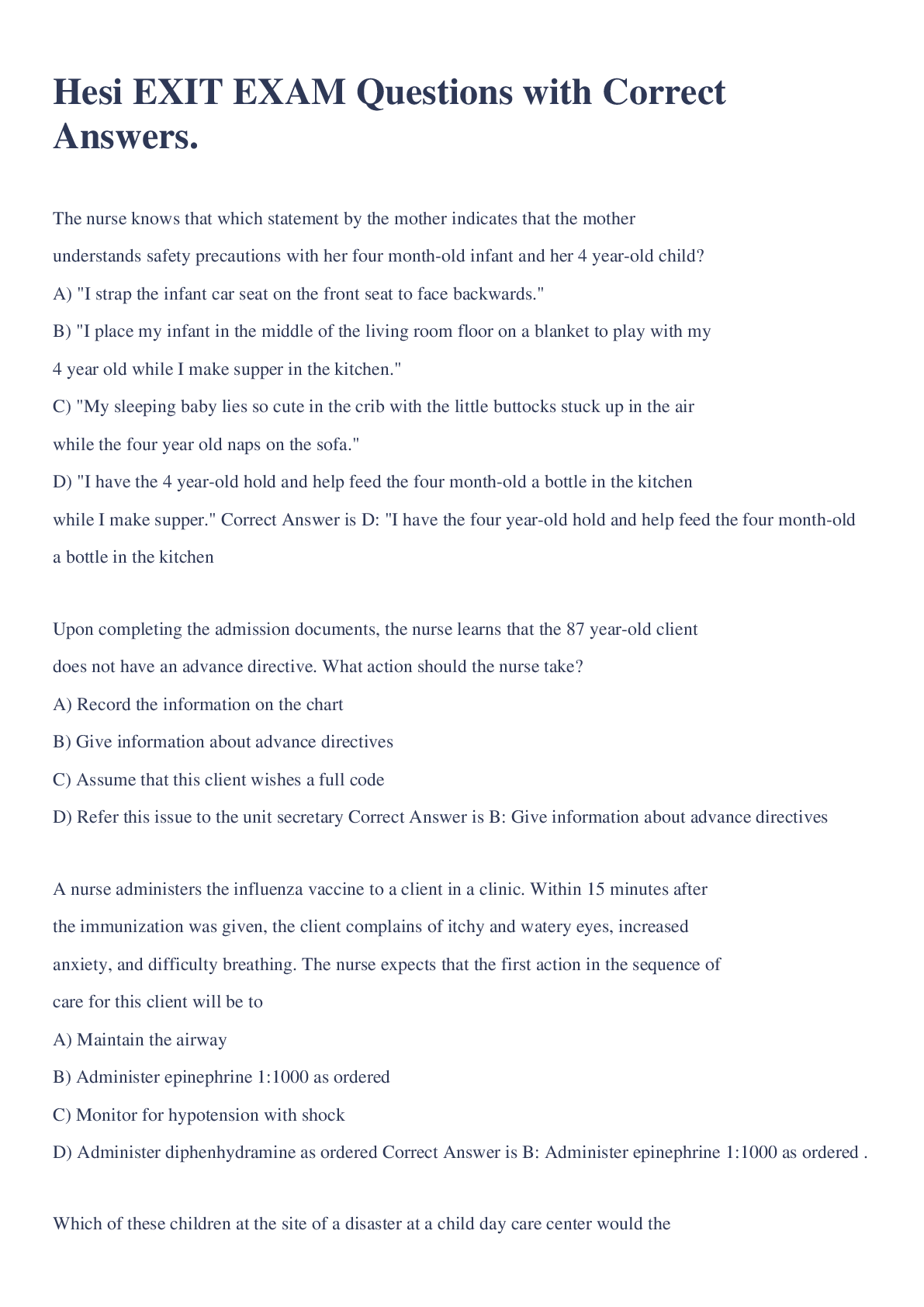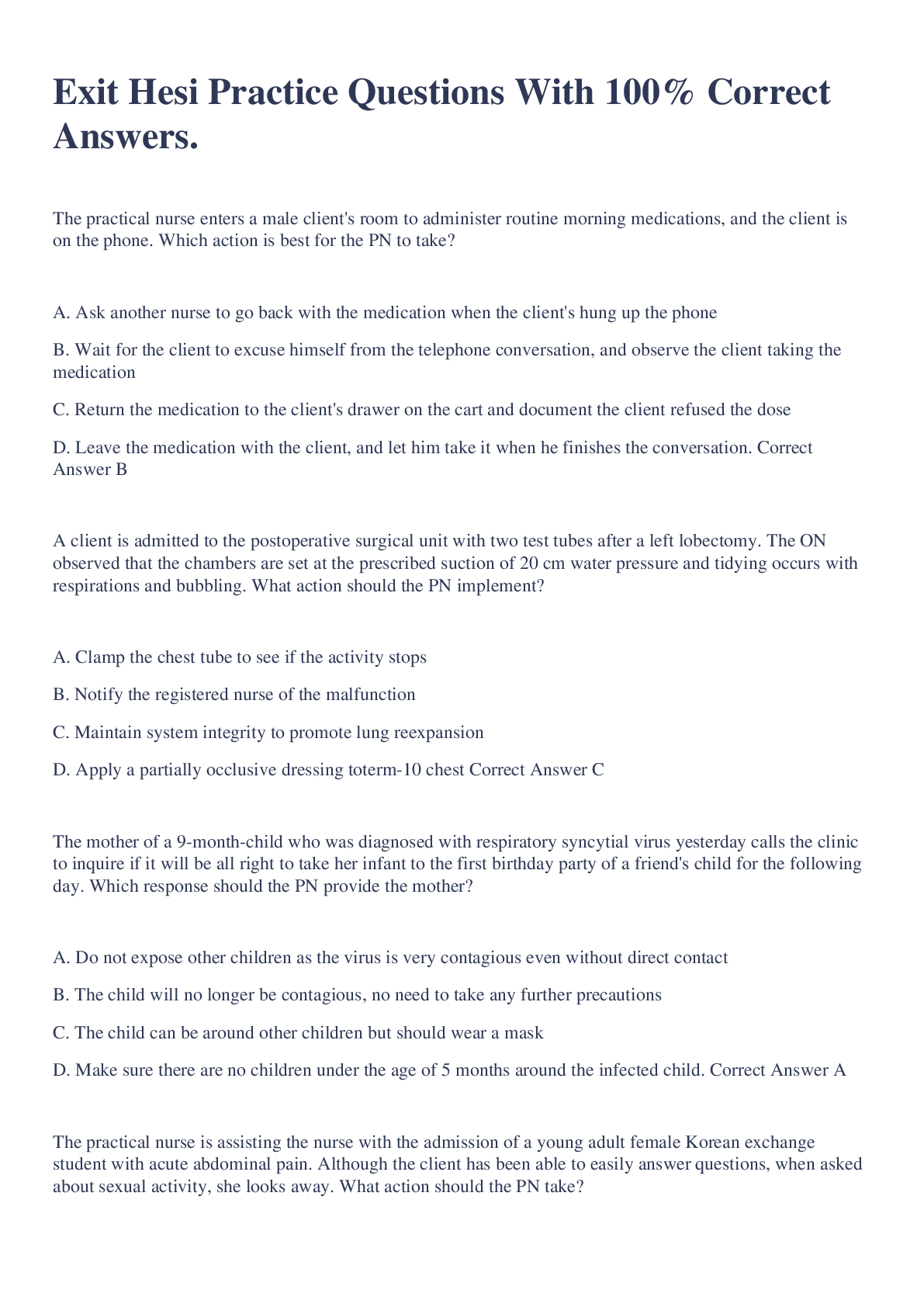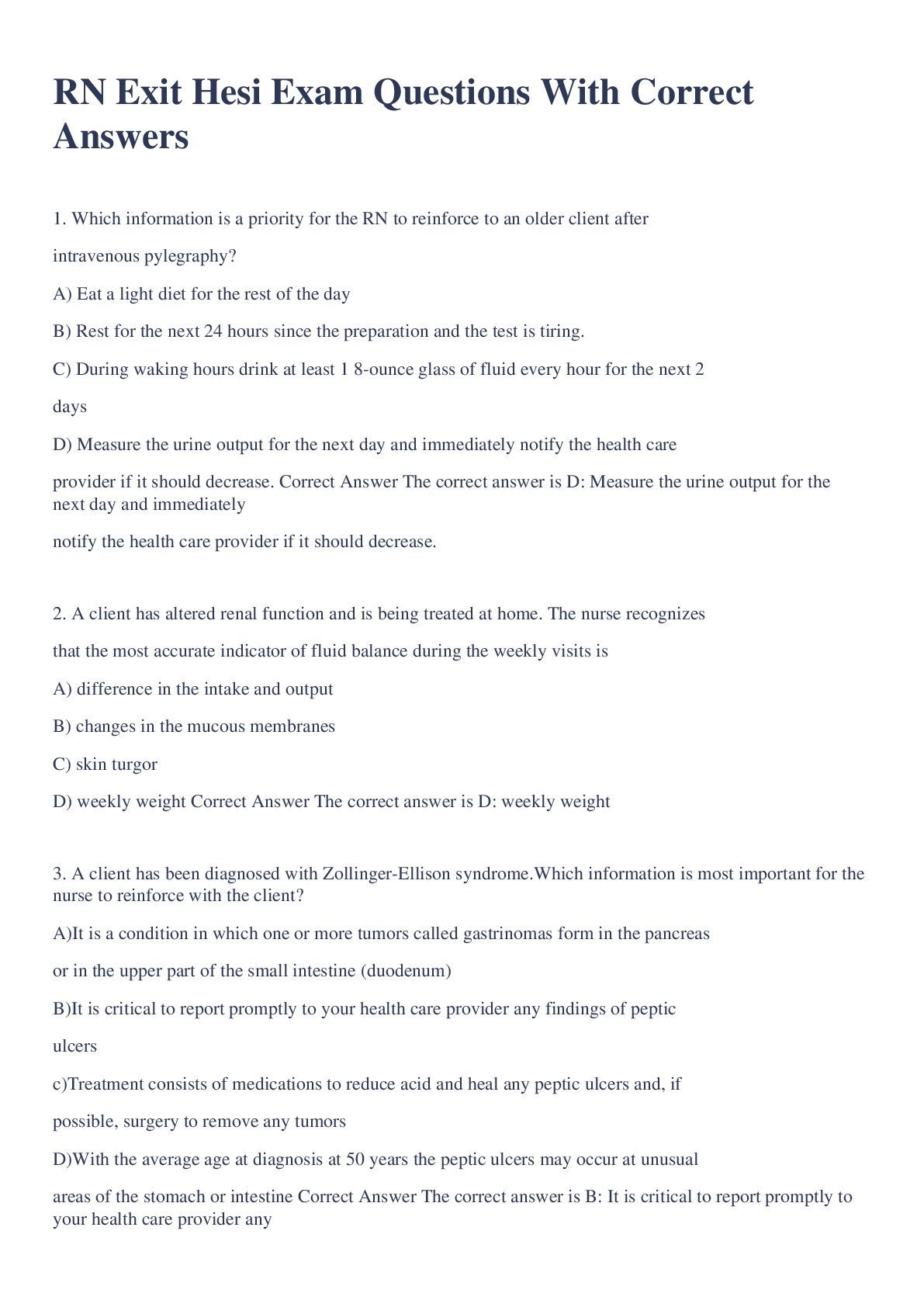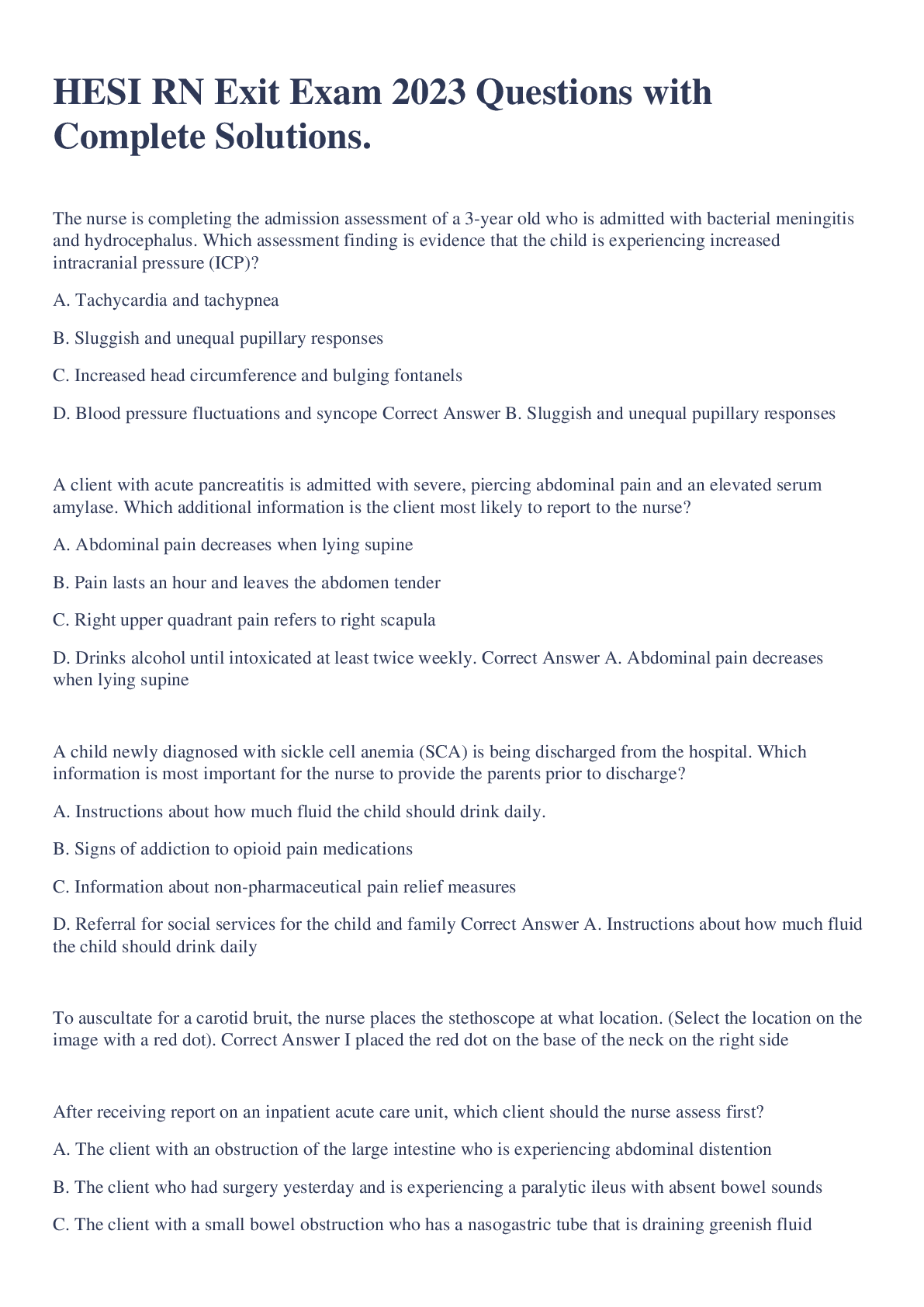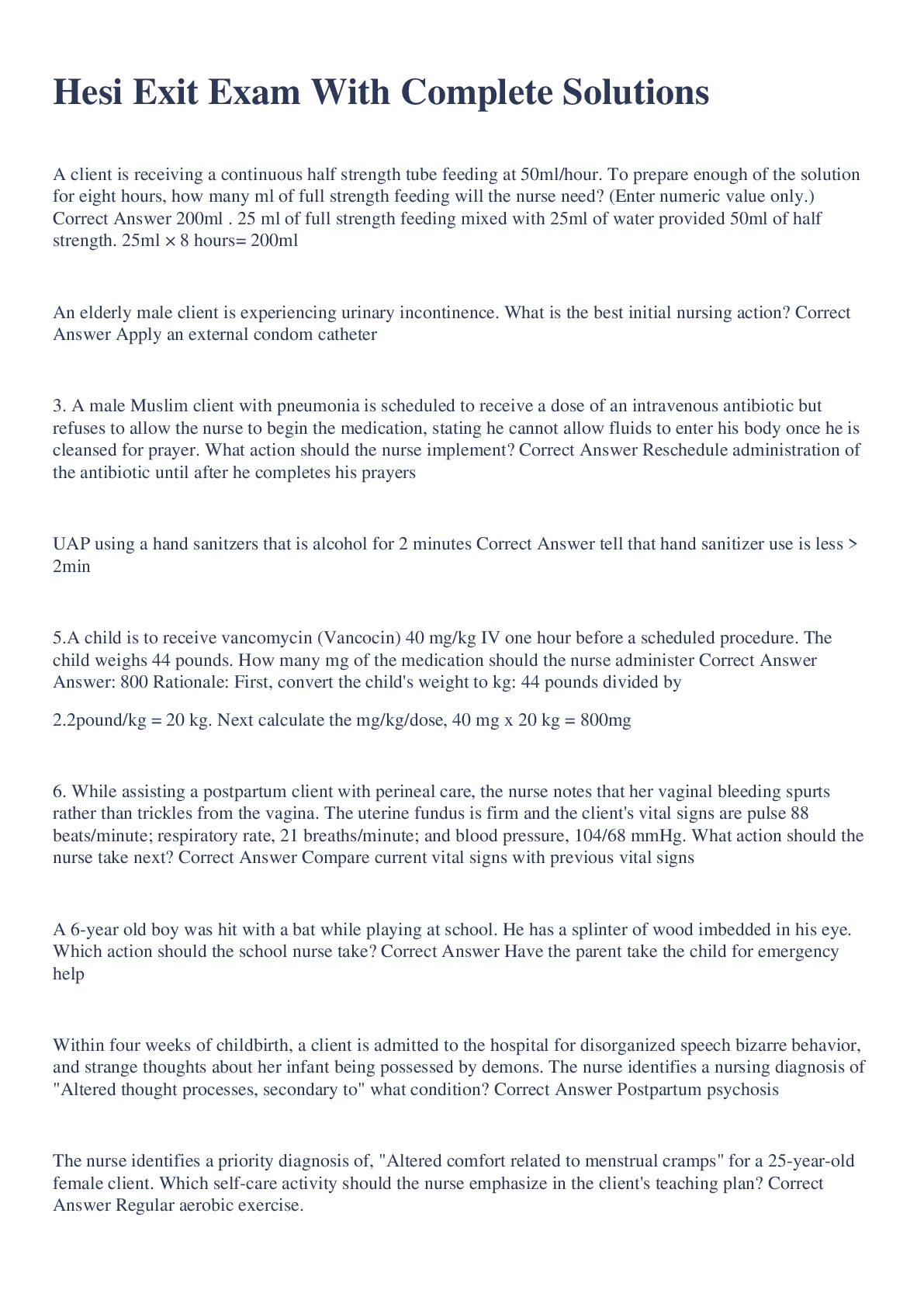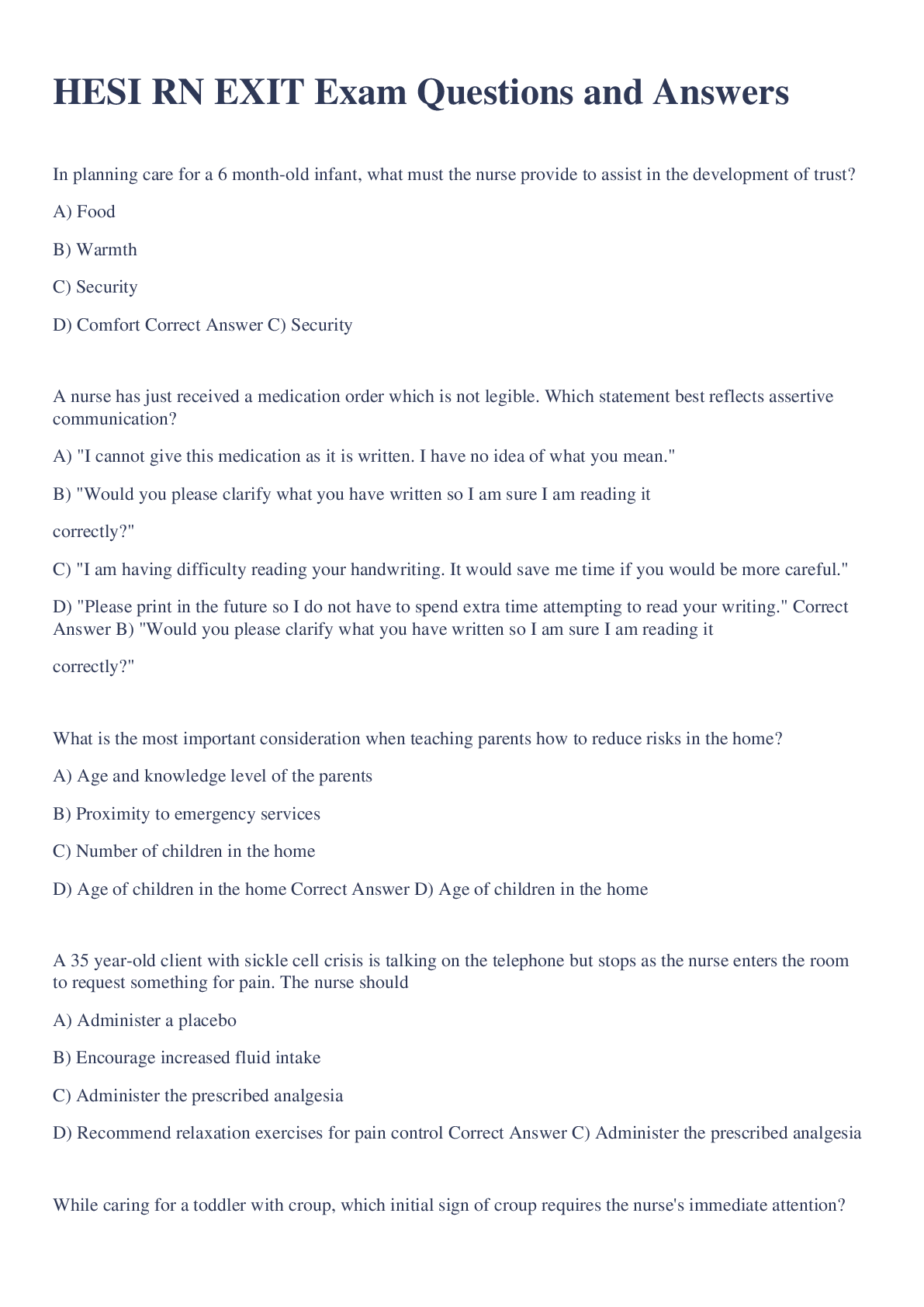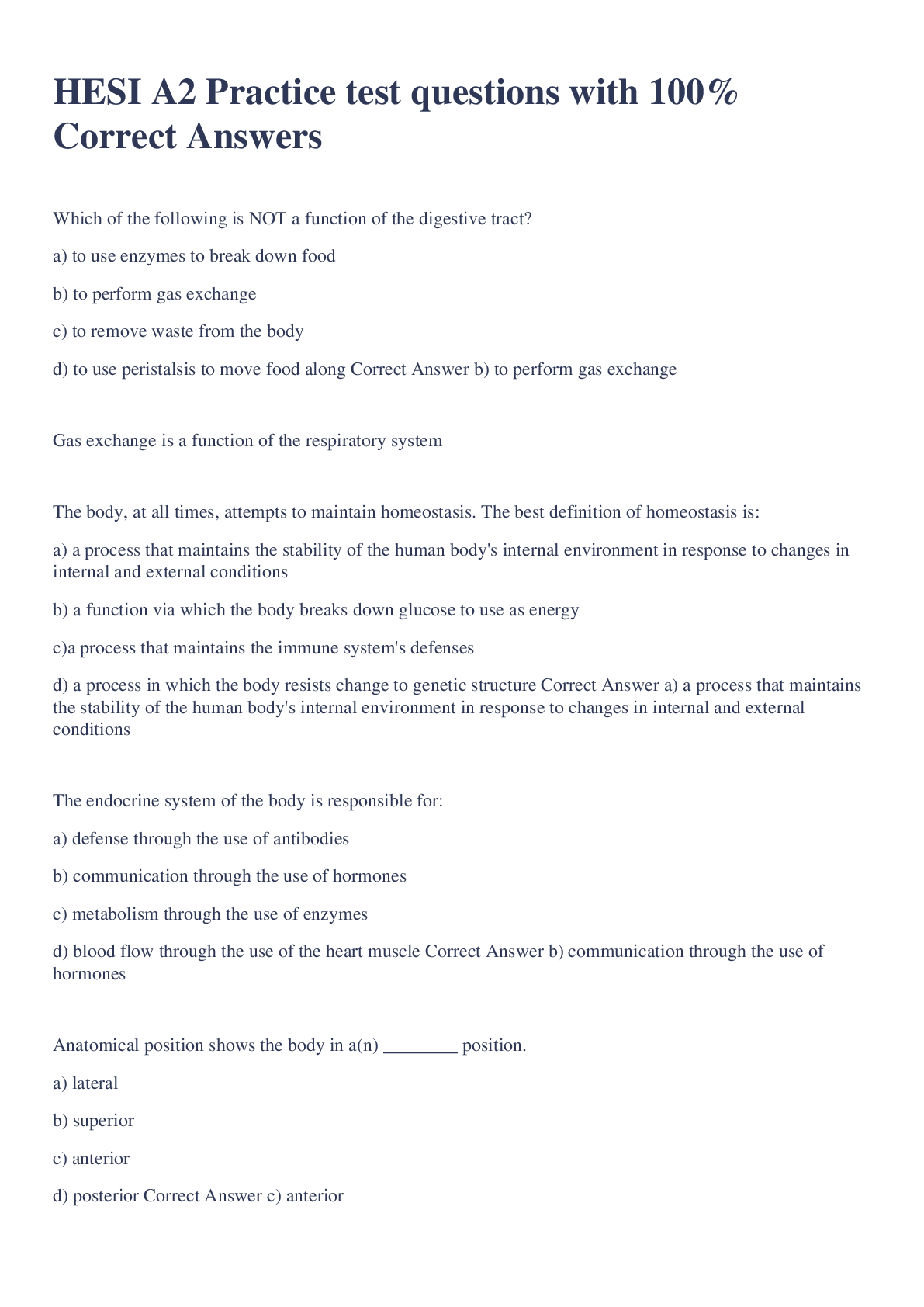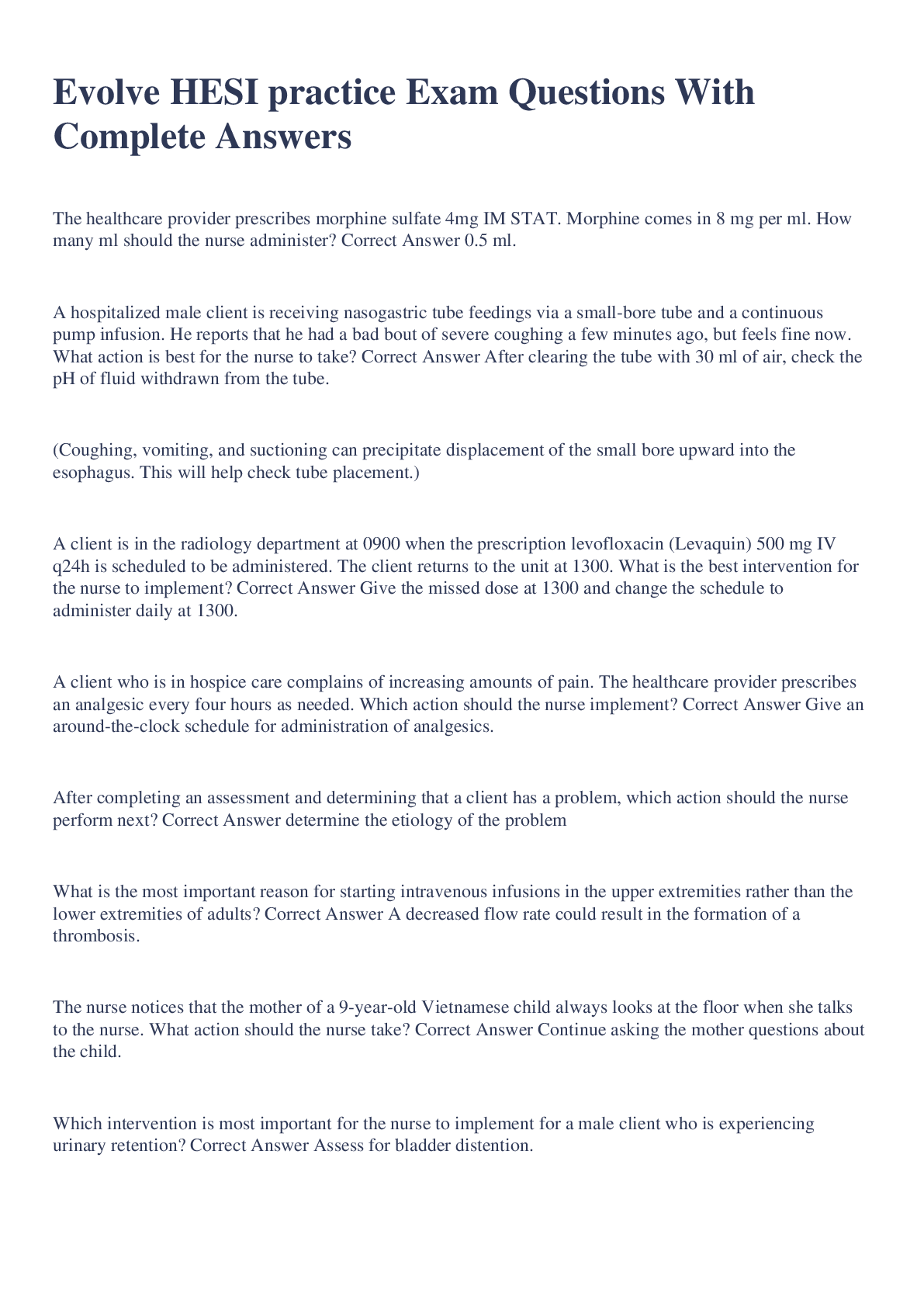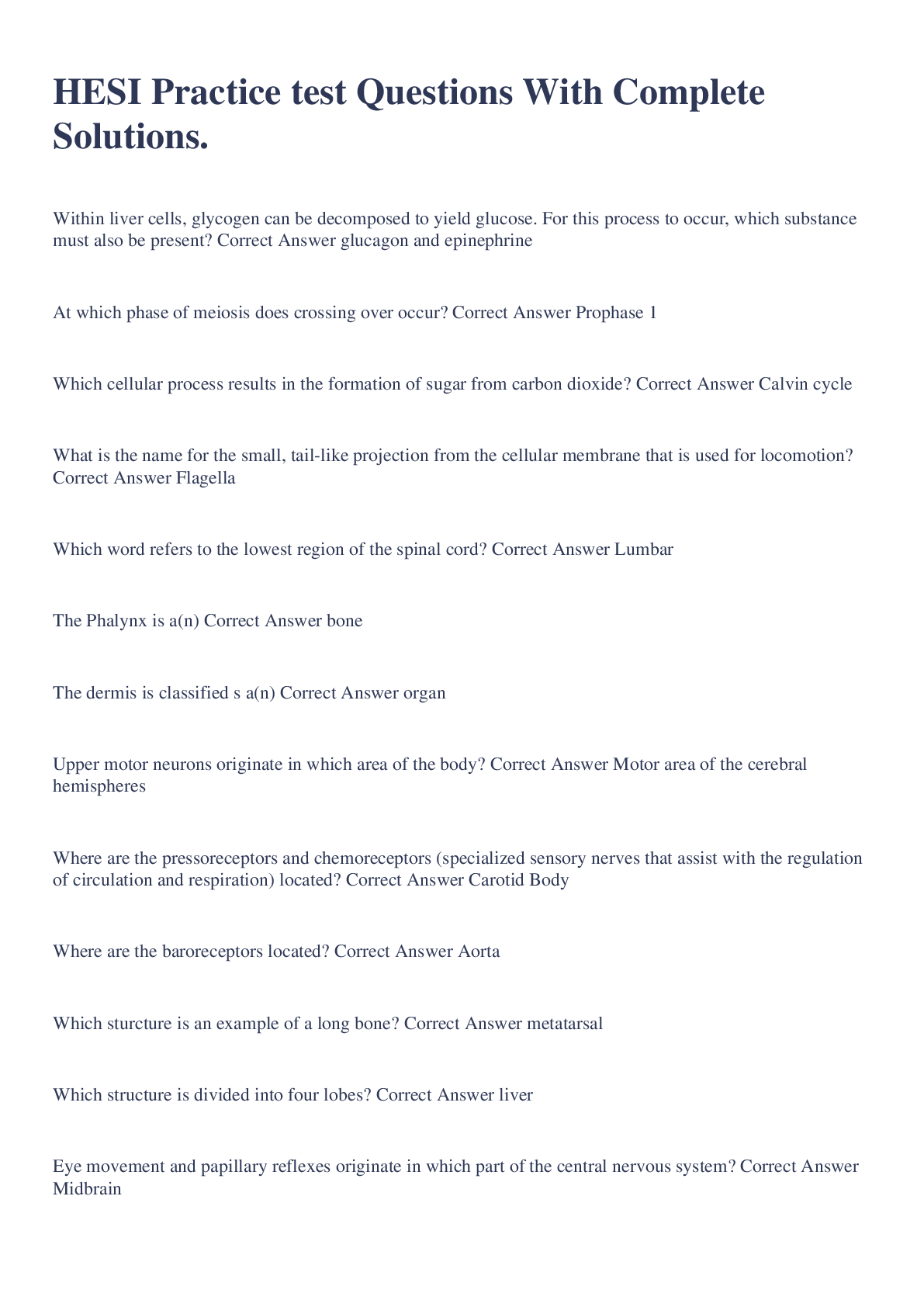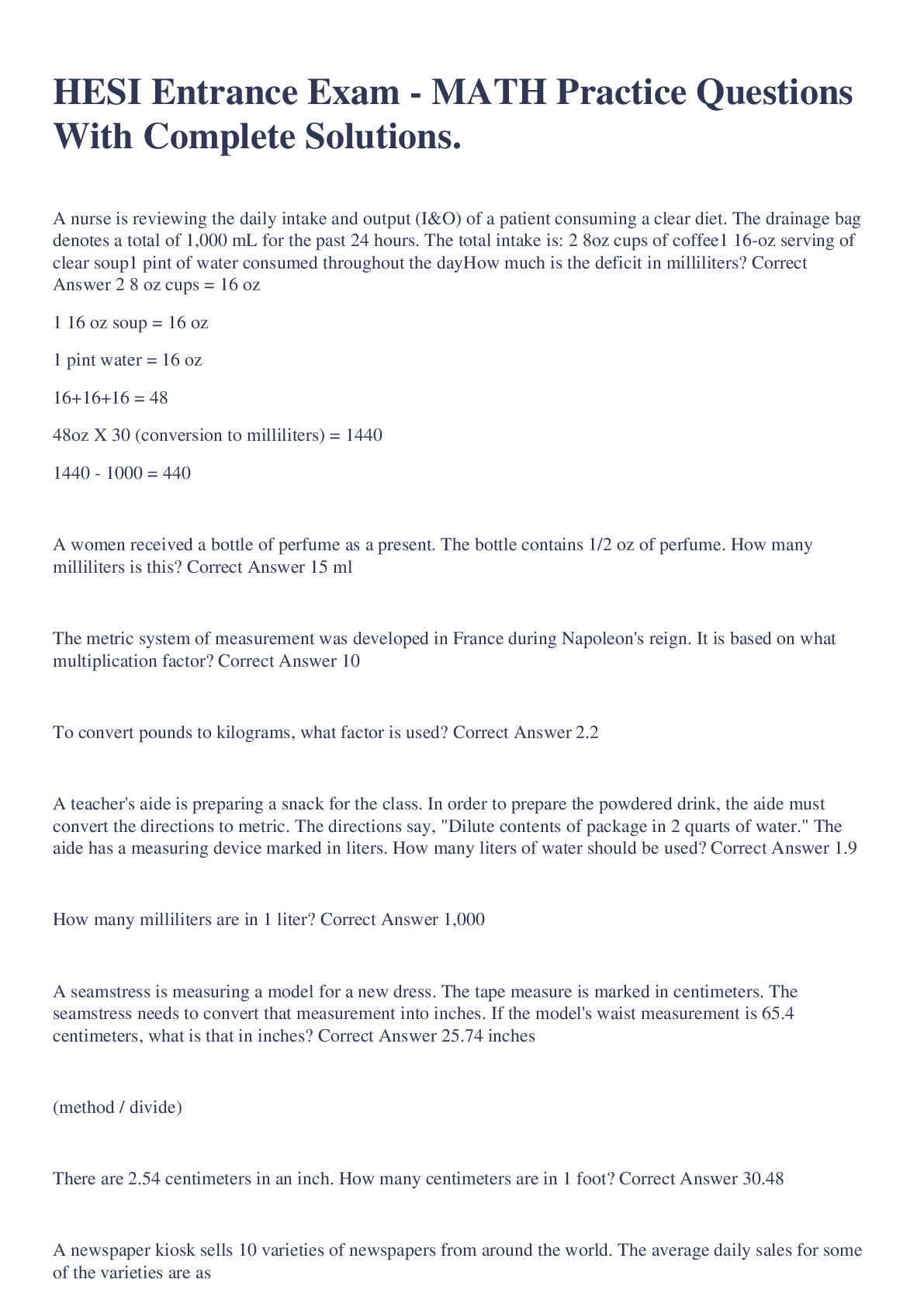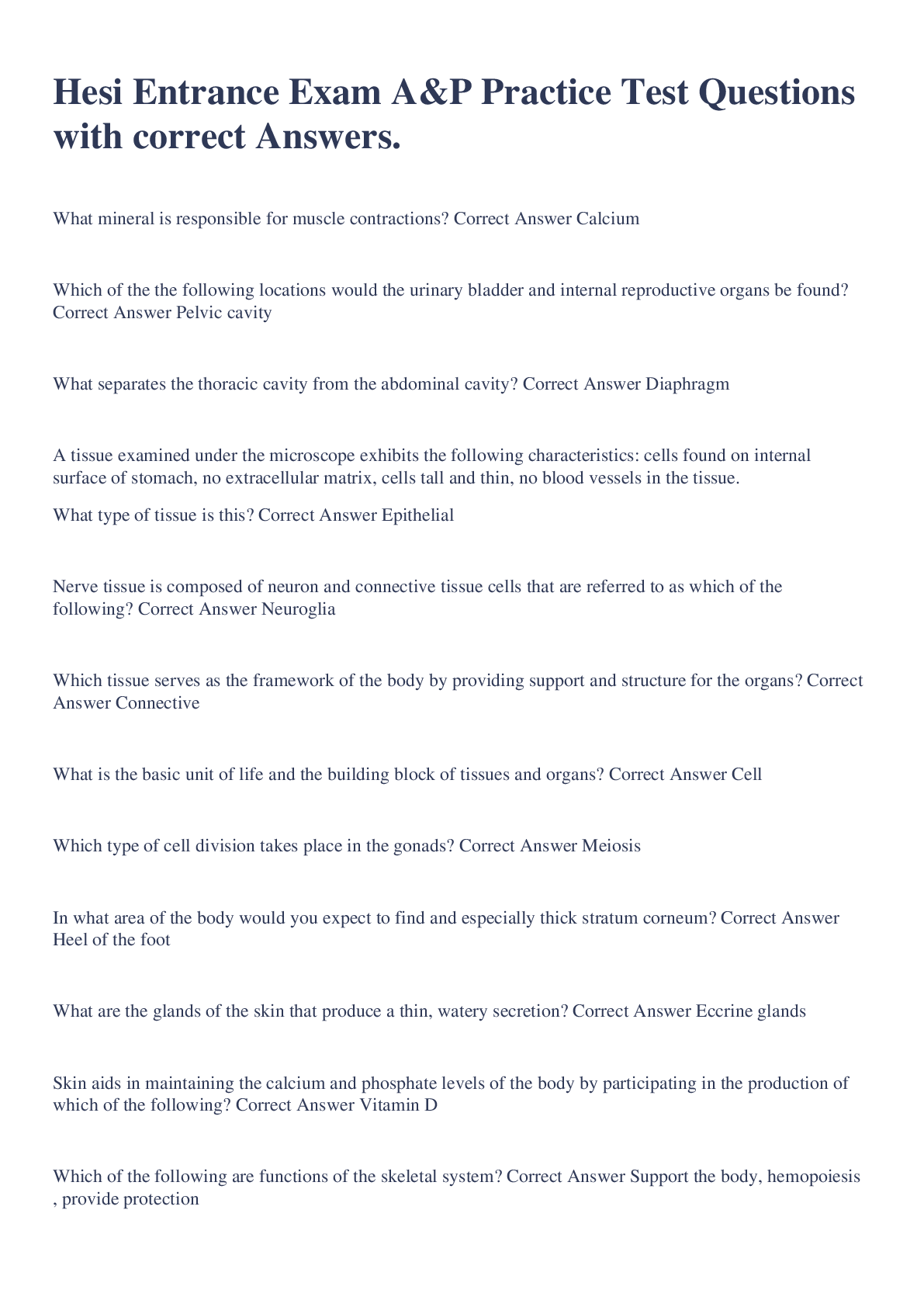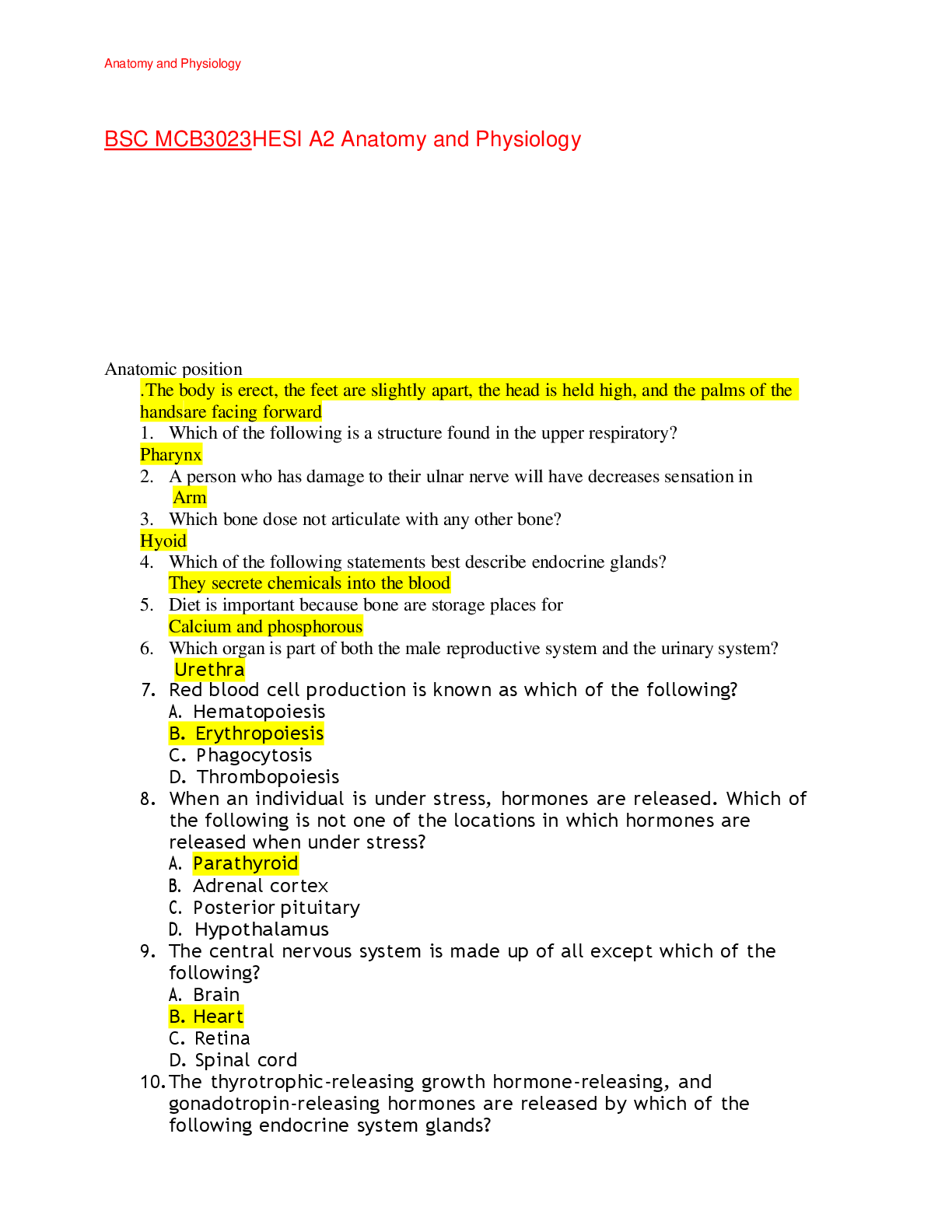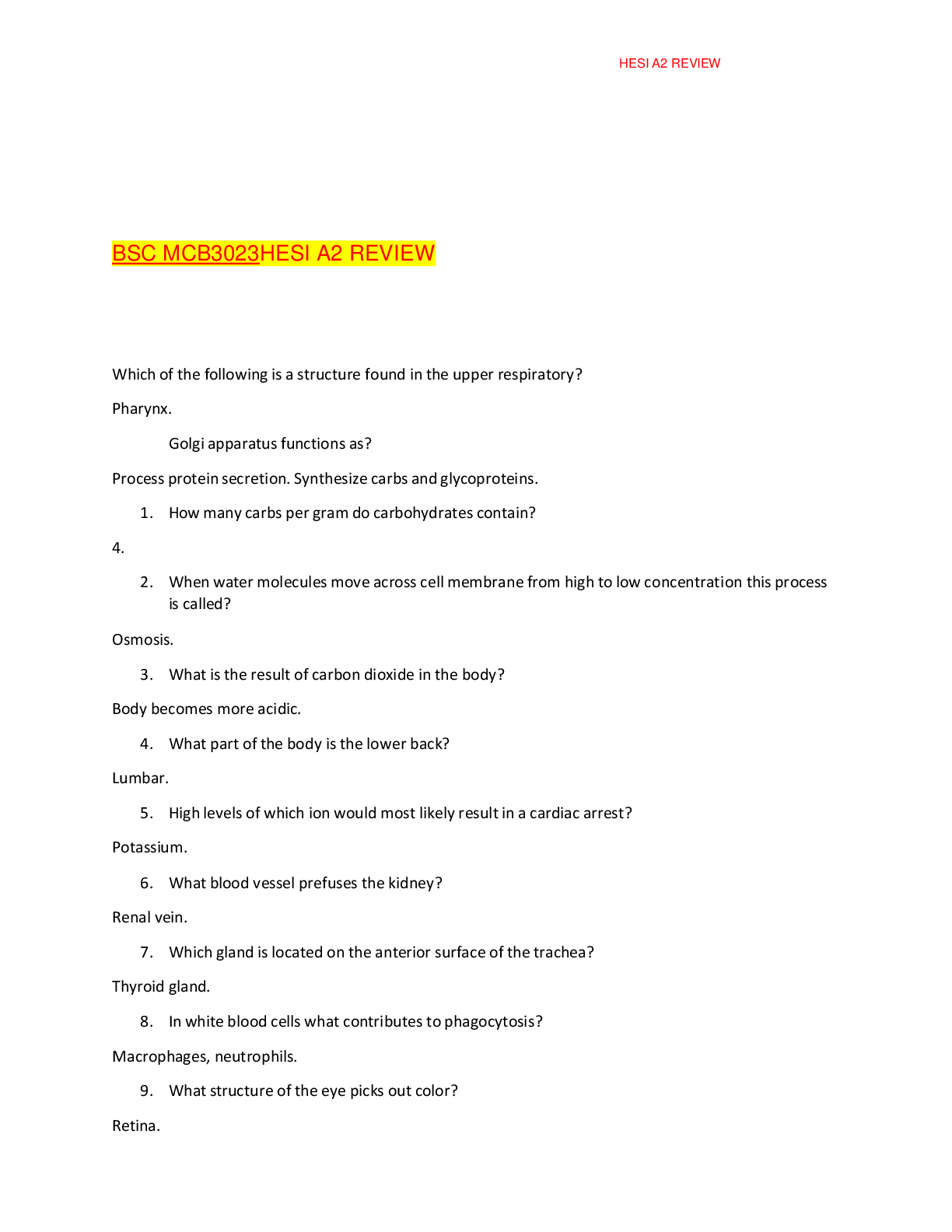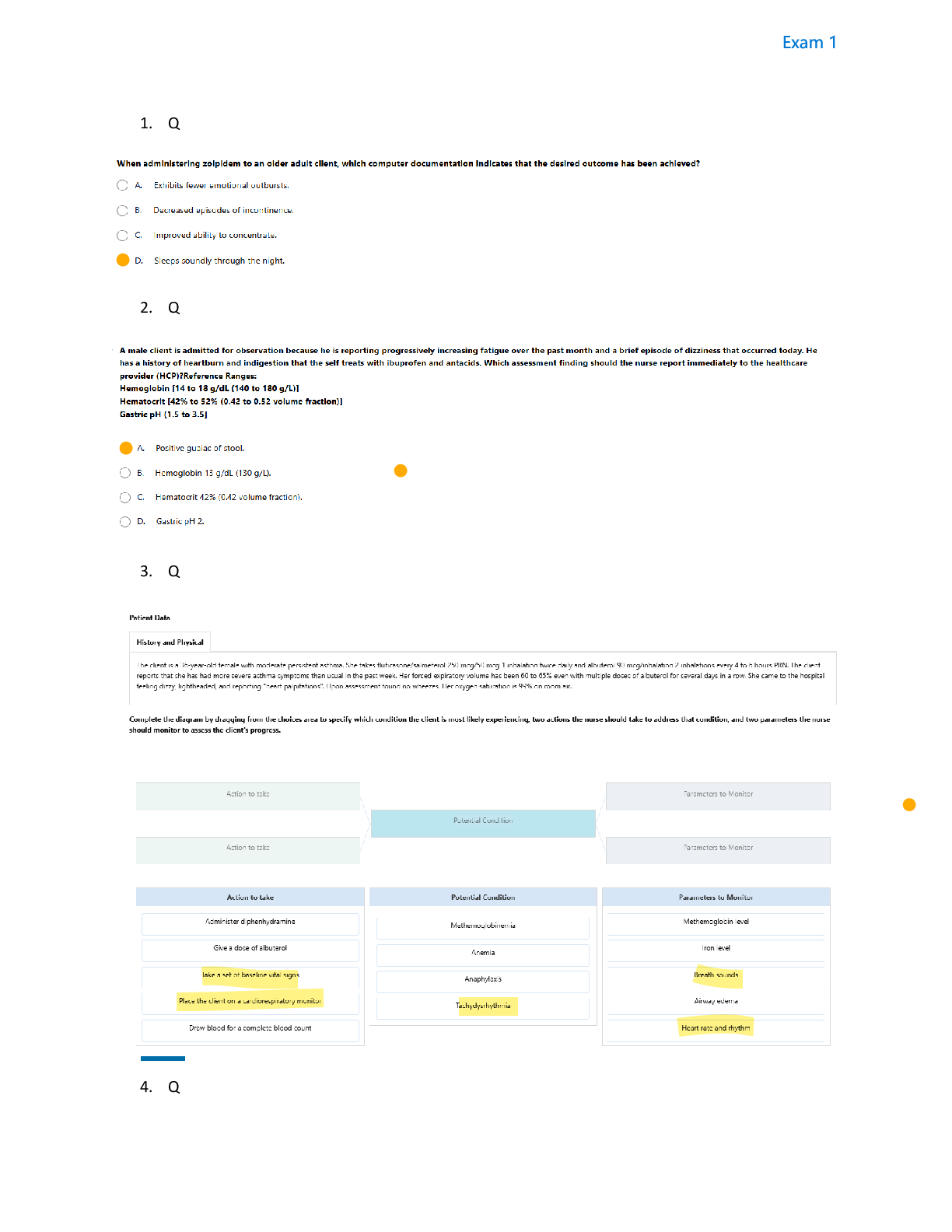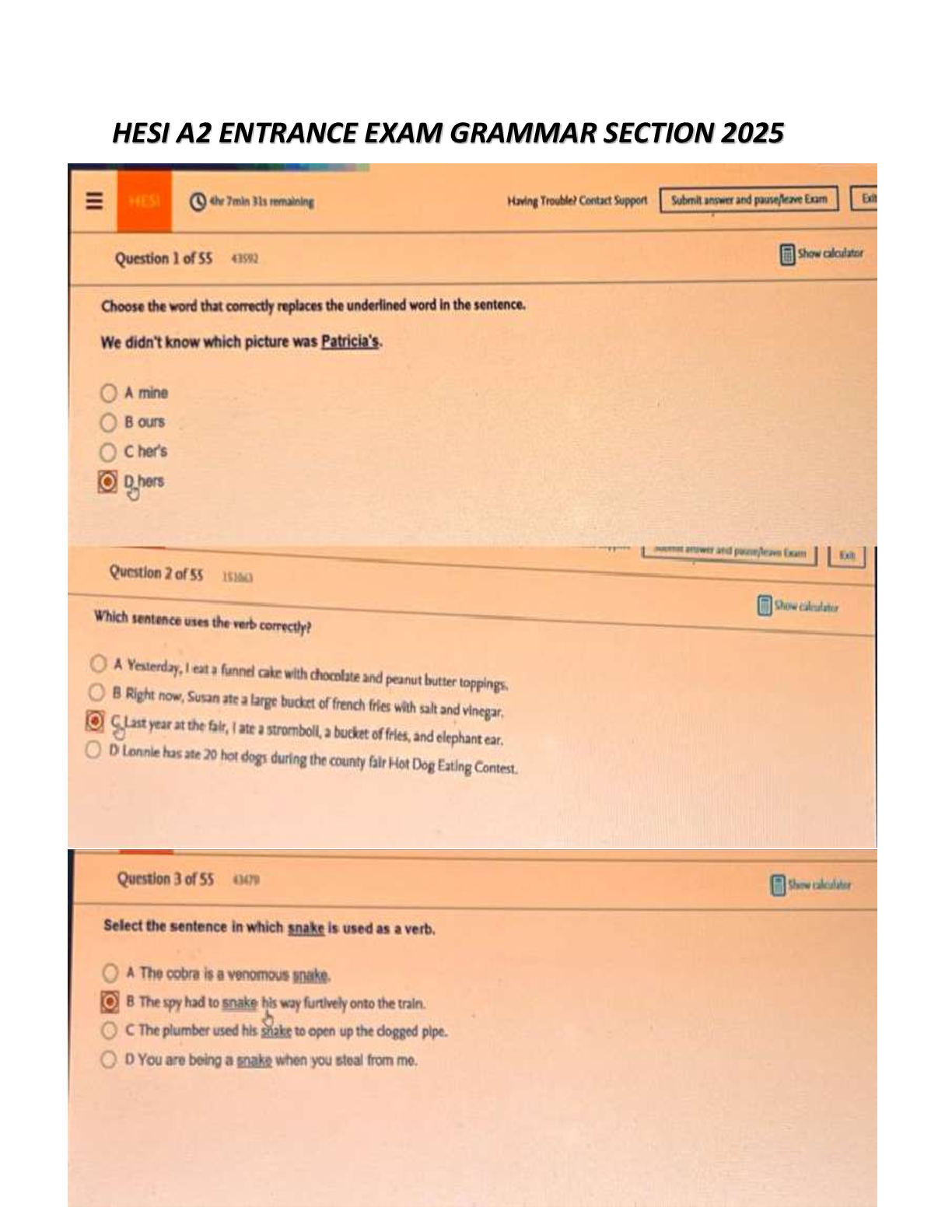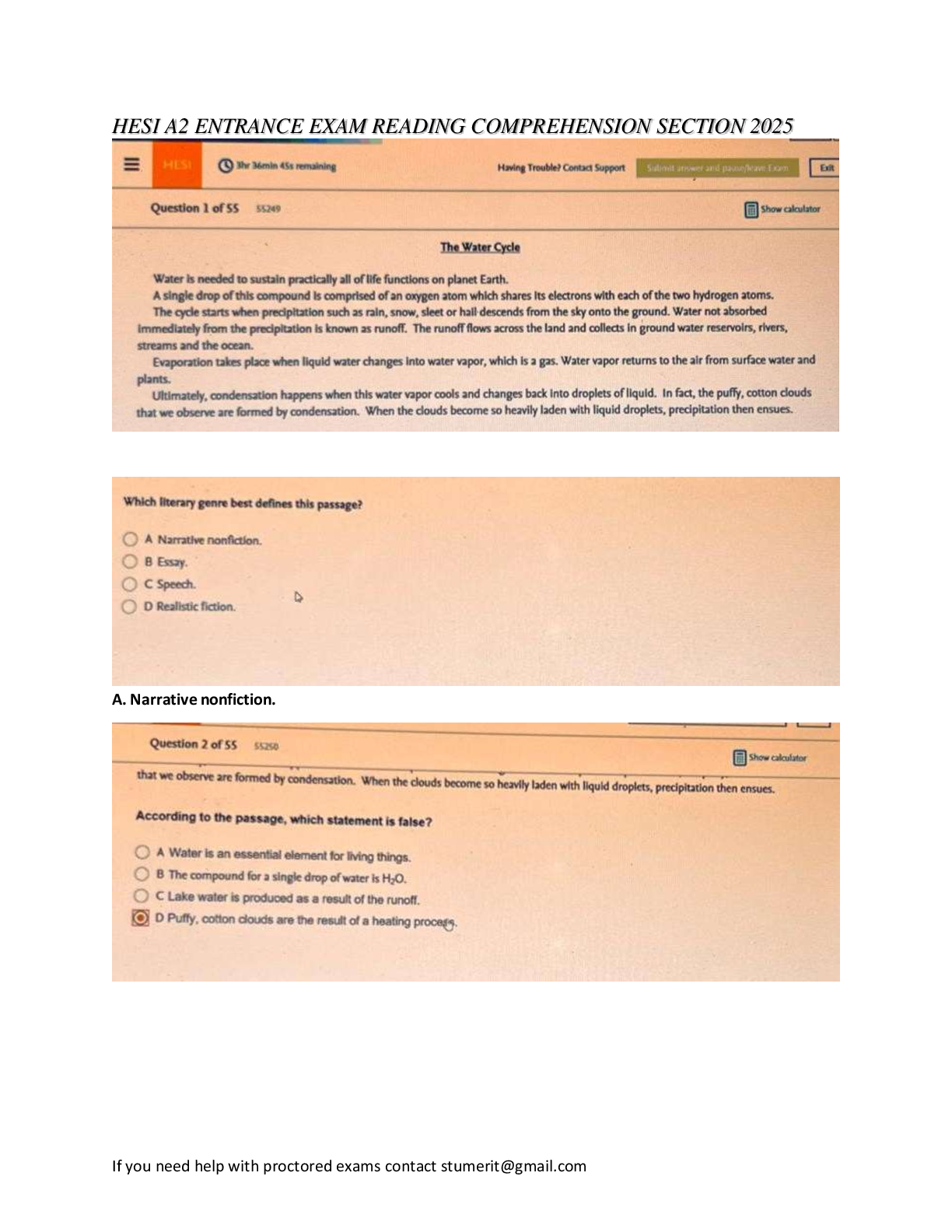General Questions > HESI > Exit HESI Practice Questions Questions with Complete Solutions. (All)
Exit HESI Practice Questions Questions with Complete Solutions.
Document Content and Description Below
A client presents at the ED complaining of a raspy voice, cold intolerance, and fatigue. Lab tests indicate an elevated TSH and low T3 and T4 levels. After the client is admitted to the telemetry unit ... , which intervention is most important for the nurse to implement? A) Assess for presence of non-pitting edema. B) Administer the prescribed dose of levothyroxine. C) Offer additional blankets and a warm drink. D) Note client's most recent hemoglobin levels. Correct Answer B) Administer the prescribed dose of levothyroxine. Rationale: In the negative feedback mechanism of hypothyroidism, a low level of thyroid hormone stimulates TSH production by the hypothalamus and results in an elevated TSH level, but the thyroid gland does not respond with adequate production of T3 and T4 to regulate basal metabolic rate. These serum hormone levels indicate the need to administer supplementary thyroid hormone as soon as possible to avert possible myxedema coma. Non-pitting edema is seen in chronic hypothyroidism and assessment of the presence and location of the edema (A) is not a top priority. Providing warmth (C) is beneficial but of less priority than (B). Anemia is common in hypothyroidism, but (D) is of lower priority than initiating treatment to prevent myxedema coma. The nurse suspects that a client might be hemorrhaging internally. Which findings of an orthostatic tilt test are a most likely indication of a major bleed (> 1000 ml)? A) A decrease in the systolic BP of 10 mm Hg with a corresponding increase in the HR of 20. B) A decrease in the systolic BP of 10 mm Hg with a corresponding decrease in the HR of 20. C) A decrease in the systolic BP of 20 mm Hg with a corresponding decrease in the HR of 10. D) A decrease in the systolic BP of 20 mm Hg with a corresponding increase in the HR of 10. Correct Answer Ans: A) A decrease in the systolic BP of 10 mm Hg with a corresponding increase in the HR of 20. Rationale: The loss of circulatory volume results in a 10 mm Hg drop in the systolic pressure, while the HR increases by 20 % above normal as a compensatory response to the low pressure. When conducting diet teaching for a client who is on a postoperative full liquid diet, which foods should the nurse encourage the client to eat? SATA. A) Canned fruit cocktail [Show More]
Last updated: 2 years ago
Preview 1 out of 44 pages
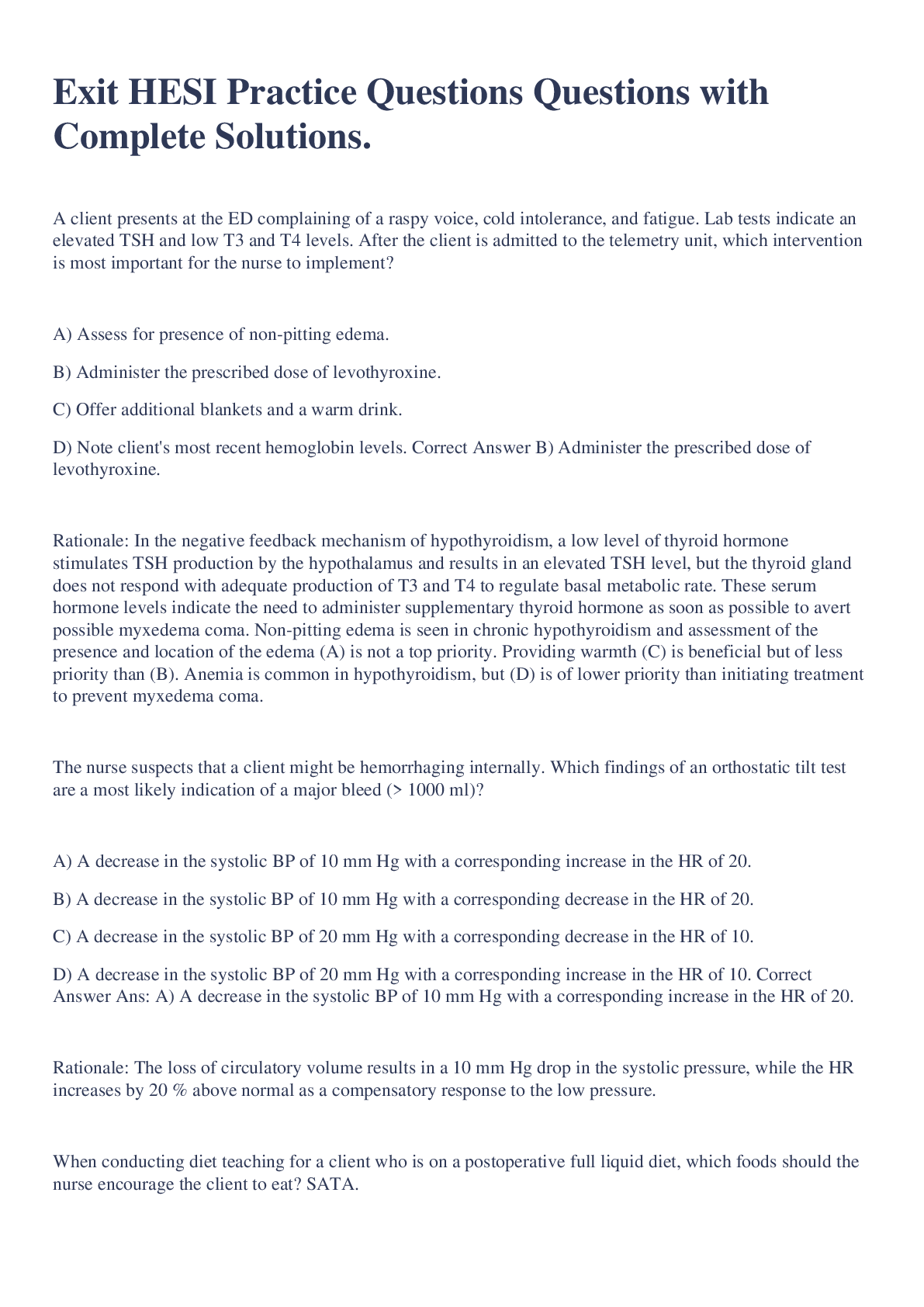
Buy this document to get the full access instantly
Instant Download Access after purchase
Buy NowInstant download
We Accept:

Reviews( 0 )
$10.00
Can't find what you want? Try our AI powered Search
Document information
Connected school, study & course
About the document
Uploaded On
Mar 29, 2023
Number of pages
44
Written in
All
Additional information
This document has been written for:
Uploaded
Mar 29, 2023
Downloads
0
Views
150

